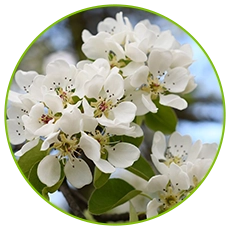Dec . 04, 2024 20:30 Back to list
apricot pollen pollination service
The Role of Apricot Pollen in Pollination Services
As agriculture evolves to meet the demands of a growing population, the significance of effective pollination services cannot be overstated. One of the crucial players in this ecosystem is the apricot tree (Prunus armeniaca), which, in addition to being a valued fruit crop, plays a vital role in supporting pollinators and enhancing biodiversity. The pollen of the apricot tree not only nourishes various pollinators but also assists in the fertilization of the trees, leading to successful fruit production.
Understanding Apricot Pollen
Apricot pollen is rich in nutrients and is known for its fine texture. This pollen is typically released in the spring, coinciding with the flowering season of the apricot tree. Apricot flowers are hermaphroditic, containing both male and female reproductive organs, which promotes self-pollination. However, cross-pollination is encouraged through the activity of pollinators, such as bees, butterflies, and other insects. The pollen serves as an essential food source for these pollinators, sustaining them during their foraging activities.
The Importance of Pollination Services
Pollination is a critical process in the lifecycle of flowering plants, directly impacting crop yield and quality. For apricot trees, effective pollination results in larger, healthier fruits with improved flavor and texture. In regions where apricot trees are cultivated, the presence of diverse pollinator populations can enhance fruit set and increase yields, which is economically beneficial for farmers.
Moreover, the role of apricot trees in the ecosystem extends beyond commercial agriculture. They provide habitat and resources for various wildlife species. The flowers attract pollinators that, in turn, feed on nectar and collect pollen, contributing significantly to local biodiversity. This interdependence underscores the importance of maintaining healthy apricot orchards not only for fruit production but also for ecosystem health.
Factors Affecting Pollination Efficiency
apricot pollen pollination service

Several factors can influence the effectiveness of apricot pollen in pollination services. Weather conditions are a significant consideration. Ideal pollination occurs during warm and dry weather; excessive rain or cold temperatures can deter pollinators and reduce pollination rates. Additionally, the timing of flowering is crucial. If apricot trees bloom too early or too late, they may miss the peak activity periods of their pollinators.
Farmland management practices also impact pollination services. The use of pesticides can harm beneficial insect populations, including bees, which are crucial for pollination. Organic farming practices that minimize chemical inputs and promote biodiversity can enhance the health of pollinator populations and consequently improve the efficacy of apricot pollen in fertilization.
Strategies for Enhancing Pollination Services
To enhance pollination services, growers can implement various strategies. Planting diverse flowering plants within and around apricot orchards can attract a broader range of pollinators. Creating habitats, such as flower strips or hedgerows, not only supports pollinators but also promotes pest management naturally.
Farmers should also consider collaborating with local beekeepers to introduce managed bee colonies during the flowering season. Honeybees are particularly efficient in pollinating apricot flowers, and their presence can lead to significant increases in fruit production.
Conclusion
In conclusion, apricot pollen plays a vital role in pollination services, affecting not only the success of apricot fruit production but also the overall health of ecosystems. By understanding the dynamics of pollination and implementing practices that support pollinator populations, we can ensure sustainable fruit production while fostering biodiversity. As we move forward, addressing the challenges faced by pollinators will be crucial in maintaining the balance within our agricultural systems and preserving the natural environment that supports us all.
-
High-Quality Oak Pollen for Allergy Research & Testing – Reliable Oak Tree & Live Oak Pollen Supplier
NewsJul.08,2025
-
Premium Pear Pollen for Pollination in Orchards in Taiwan – Reliable Factories, Manufacturers & Suppliers
NewsJul.08,2025
-
Premium Pollen Producer & Apricot Pollen Suppliers High-Quality Apricot Pollen Factories
NewsJul.07,2025
-
Premium Juniper Tree Pollen for Fruit Tree Varieties – Quality Assured by Leading Plum Pollen Manufacturers
NewsJul.07,2025
-
High Quality Elm Pollen Supplier - Fresh Elm Tree & Apricot Flower Pollen for Sale
NewsJul.07,2025
-
Premium Cherry Pollen for Sale – Fresh Cherry & Avocado Tree Pollen Supplier
NewsJul.06,2025